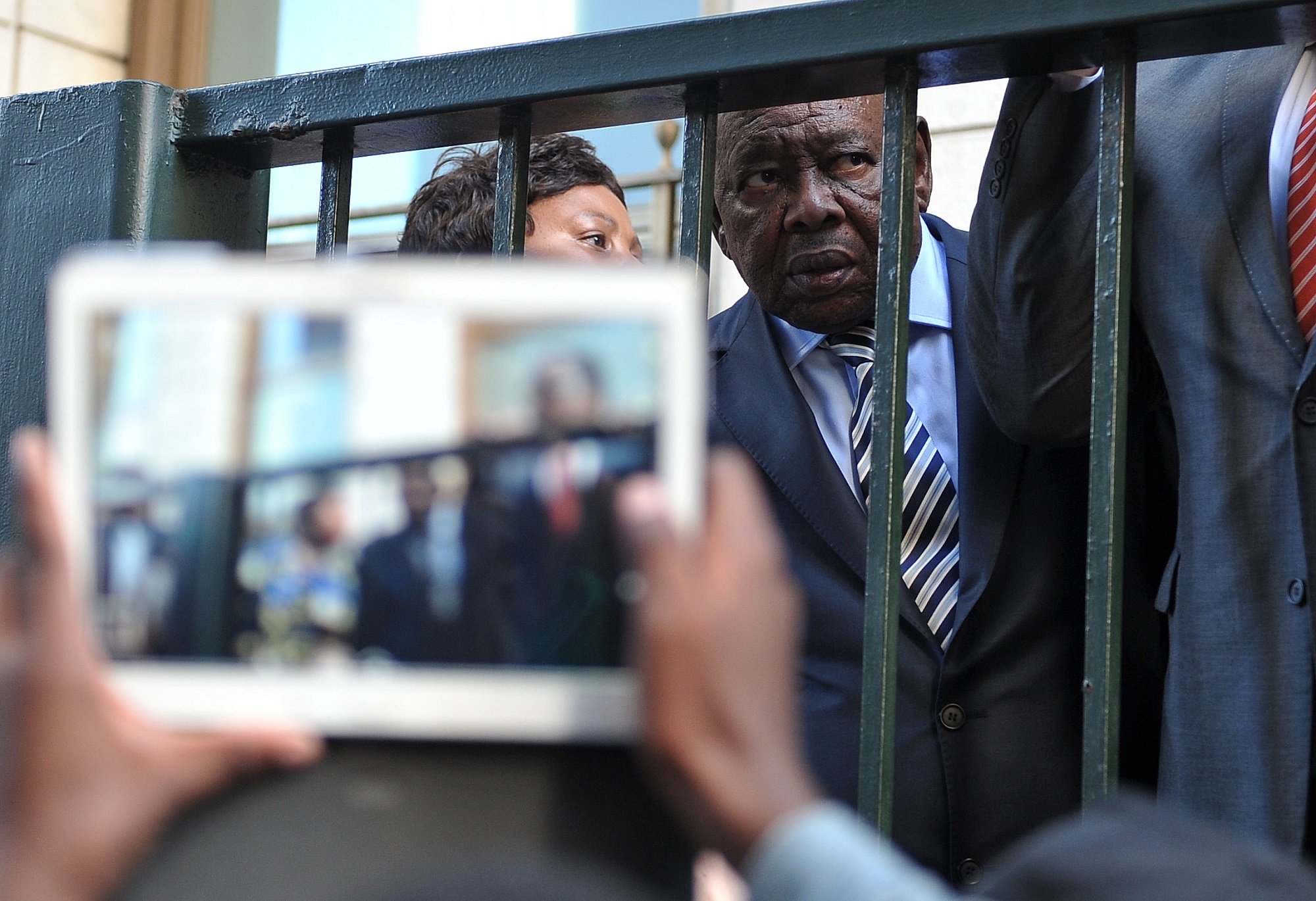Ndoni Mcunu: For fees to fall, ethical leadership must first rise

CAPE TOWN, SOUTH AFRICA - OCTOBER 21: Minister of Higher Education Blade Nzimande addresses students who are protesting outside of parliament on October 21, 2015 in Cape Town, South Africa. Protesting students broke through the gates of parliament during protests against a proposed hike in tuition fees, this is part of the #FeesMustFall movement. (Photo by Gallo Images / Die Burger / Luigi Bennett)
“Where is leadership?” has been amongst the many questions South Africans have been asking during the past year.
Events such as the #FeesMustFall movement have made us suddenly acutely aware of unauthentic leaders in our midst. South Africans are no longer impressed or quiet about leaders who lack ethical accountability.
The growth of social media has not only resulted in opening access to dialogues on modern leadership decisions, but also allowed for Africans to monitor and evaluate leadership in the country. The growth of social media platforms such as Twitter, which had more than 310 million monthly active users in 2016, has challenged the status quo of modern leadership. The media has also been used as a tool to expose toxic leadership and injustices, and has empowered Africans to speak out on matters such as access to education, racial inequalities and corruption.
The country has been crying for more ethical leadership. But I ask, as a country, do we know what constitute an ethical leader? As a country, do we have defined values and standards that we measure our leaders by? “Ethical leadership” is a term that may seem obvious, but are we all on the same page with what we want in an ethical leader?
Chief Justice Mogoeng Mogoeng suggests that, in the current state of South Africa, an ethical leader leaves no room for corruption. Leaders such as Deputy Finance Minister Mcebisi Jonas – who illustrated characteristics of boldness, without reducing his standards, values and ethics under political pressure – is an example of the kind of ethics needed in the modern leader: someone who is accountable and transparent.
Furthermore, an ethical leader considers others in decisions, and not their own gain. Ethics monitor Cynthia Schoeman suggests that ethical leaders know how to admit when they have made mistakes, apologise, be held accountable, and not repeat the mistake. This helps to gain the trust of their followers. We then need to question how much does one’s own character influence one’s ethical leadership, based on the character traits of ethical leadership?
Ethical leaders have the ability to influence followers and make a difference in the country. Had we had more ethical leaders with influence, perhaps events such as #FeesMustFall would have been handled with more care and sensitivity and avoided the destruction of property. Had we had more ethical leaders, our economy would not be in its current state where unemployment, low growth and inequality is the order of the day. Had we had more ethical leaders, our constitutional institutions would not be used as tools to settle political games. Had we had more ethical leaders, financial stability would not have been comprised and our state would not have been “captured” by private interests that have no interest in the people of this country, but only their own selfish gains.
Subconsciously, we are all ethically sensitive and have an “ethical trigger”. One example is the leaked pictures that accused Blade Nzimande of being a “blesser”. This was at the peak of the #FeesMustFall protest and an attempt to tamper with a leader’s values and ethics in order to question his leadership abilities.
Yet, when selecting a leader for our country, ethics are never emphasised. A toxic leader is not necessarily a leader who is corrupt, but someone who is incompetent. I then ask, could the reason why ethics are such a major factor in leadership today – rather than in the times of Nelson Mandela – be due to the fact that leaders’ private lives, decisions, values and morals are exposed and discussed more openly these days. Therefore, there is a need for the rise of ethical leaders – leaders whose characters are defined by their ways of being, rather than doing.
How then do we ensure #TheRiseOfAnEthicalLeader? We need to evaluate other aspects, such as upbringing, and how they aid in developing ethical leaders. What training is there being done at primary level to build ethical leaders? When it comes to business, how do we change businesses “values”, “visions” and “missions” to be more ethical to instill those qualities in employees?
The question Africans should ask is, how do we select our leaders? When alone, what do you do when no one is looking? How much does family structure play a role in developing ethics in our current leaders? We need to consider the complete educational cycle of an individual.
We need to encourage people to legislate themselves, let you police you. Most importantly, we need to define our identity as a country and choose what values define us and what kind of people we want to lead us.




